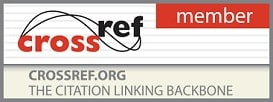
- Printed Journal
- Indexed Journal
- Refereed Journal
- Peer Reviewed Journal
Impact Factor: Impact Factor(RJIF): 5.3
International Journal of Home Science
2020, VOL. 6 ISSUE 3, PART G
Values and ethics: Attributes influencing self-esteem and cognitive style of adolescents
Author(s): Dr. Anindita Gupta
Abstract:
Ethics seeks to resolve questions of human morality by defining concepts such as good and evil, right and wrong, virtue and vice, justice and crime. Values on the other hand denotes the degree of importance of something or action, with the aim of determining what actions are best to do or what way is best to live, or to describe the significance of different actions. In psychology, the term self-esteem is used to describe a person's overall sense of self-worth or personal value. In other words, how much you appreciate and like yourself. Self-esteem is often seen as a personality trait, which means that it tends to be stable and enduring. Cognitive styles refer to the preferred way individual processes information. Unlike individual differences in abilities which describe peak performance, styles describe a person’s typical mode of thinking, remembering or problem solving. Furthermore, styles are usually considered to be bipolar dimensions whereas abilities are unipolar (ranging from zero to a maximum value). Having more of ability is usually considered beneficial while having a particular cognitive style simply denotes a tendency to behave in a certain manner. Cognitive style is a usually described as a personality dimension which influences attitudes, values, and social interaction. A number of cognitive styles have been identified and studied over the years. Field independence versus field dependence is probably the most well-known style. It refers to a tendency to approach the environment in an analytical, as opposed to global, fashion. At a perceptual level, field independent personalities are able to distinguish figures as discrete from their backgrounds compared to field dependent individuals who experience events in an undifferentiated way. In addition, field dependent individuals have a greater social orientation relative to field independent personalities. The present study is a reviewed study intending to find the relationship between the four attributes present in adolescents. The paper would emphasize on the relationship of ethics and values with adolescent’s self-esteem and cognitive style.
Ethics seeks to resolve questions of human morality by defining concepts such as good and evil, right and wrong, virtue and vice, justice and crime. Values on the other hand denotes the degree of importance of something or action, with the aim of determining what actions are best to do or what way is best to live, or to describe the significance of different actions. In psychology, the term self-esteem is used to describe a person's overall sense of self-worth or personal value. In other words, how much you appreciate and like yourself. Self-esteem is often seen as a personality trait, which means that it tends to be stable and enduring. Cognitive styles refer to the preferred way individual processes information. Unlike individual differences in abilities which describe peak performance, styles describe a person’s typical mode of thinking, remembering or problem solving. Furthermore, styles are usually considered to be bipolar dimensions whereas abilities are unipolar (ranging from zero to a maximum value). Having more of ability is usually considered beneficial while having a particular cognitive style simply denotes a tendency to behave in a certain manner. Cognitive style is a usually described as a personality dimension which influences attitudes, values, and social interaction. A number of cognitive styles have been identified and studied over the years. Field independence versus field dependence is probably the most well-known style. It refers to a tendency to approach the environment in an analytical, as opposed to global, fashion. At a perceptual level, field independent personalities are able to distinguish figures as discrete from their backgrounds compared to field dependent individuals who experience events in an undifferentiated way. In addition, field dependent individuals have a greater social orientation relative to field independent personalities. The present study is a reviewed study intending to find the relationship between the four attributes present in adolescents. The paper would emphasize on the relationship of ethics and values with adolescent’s self-esteem and cognitive style.
Pages: 384-388 | 650 Views 297 Downloads

How to cite this article:
Dr. Anindita Gupta. Values and ethics: Attributes influencing self-esteem and cognitive style of adolescents. Int J Home Sci 2020;6(3):384-388.





